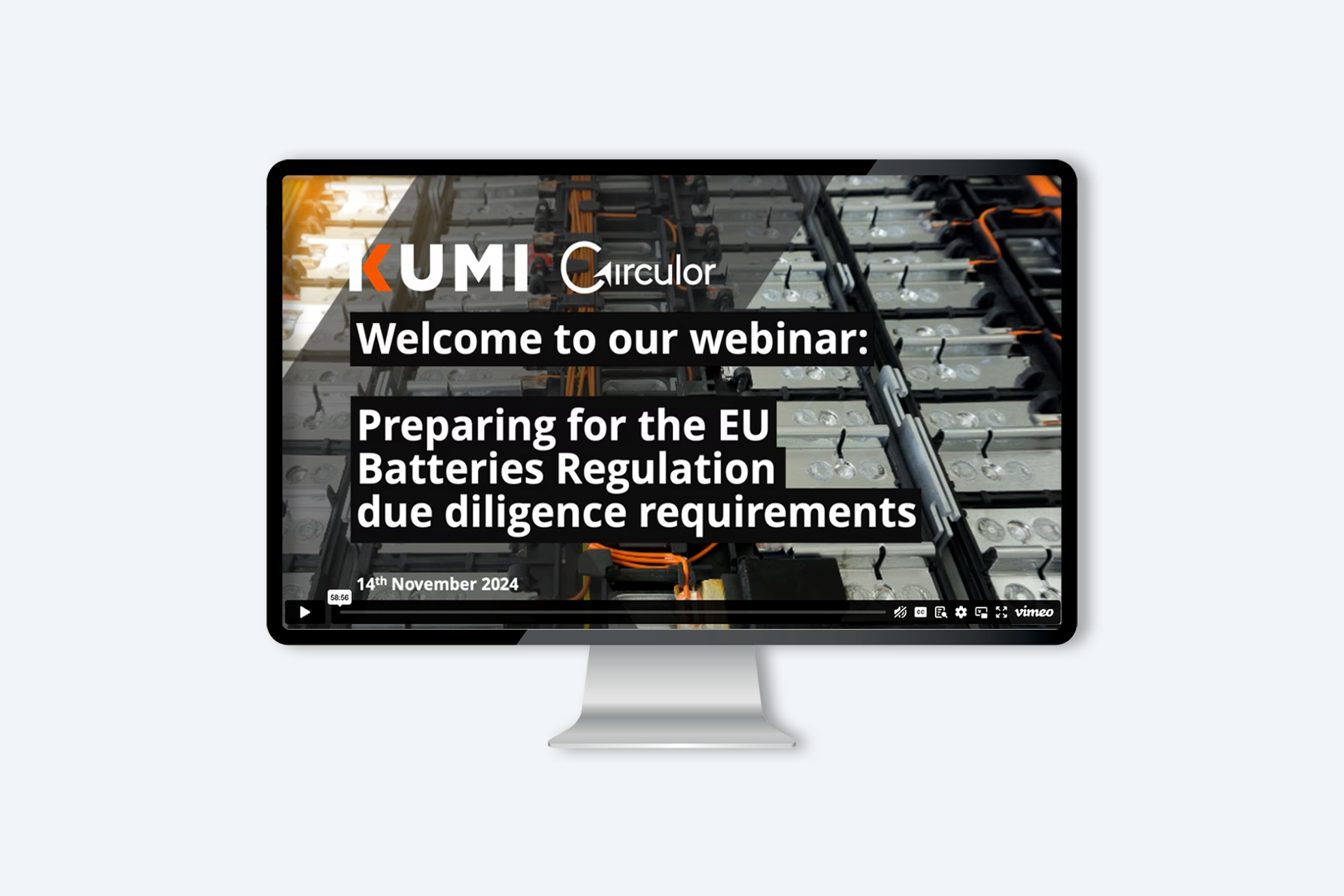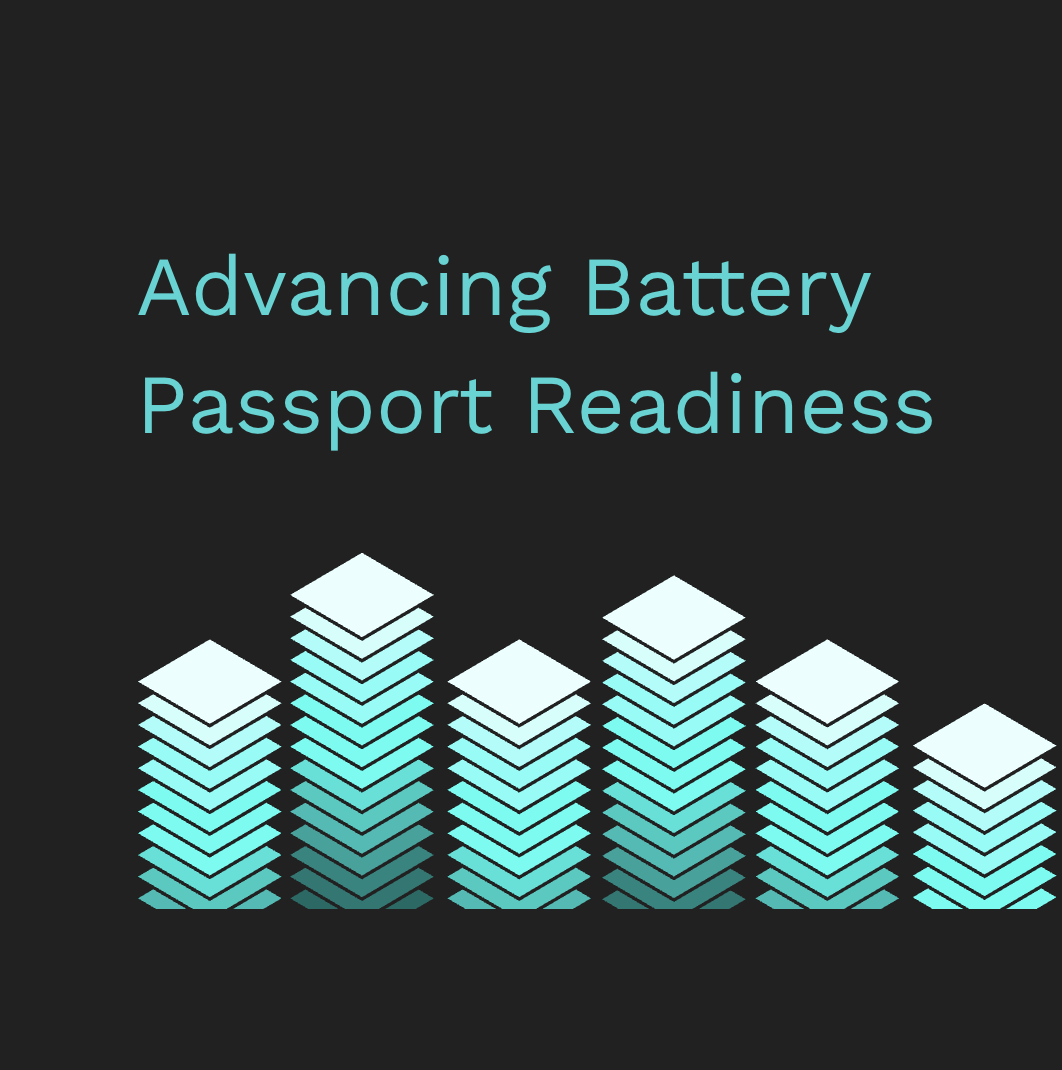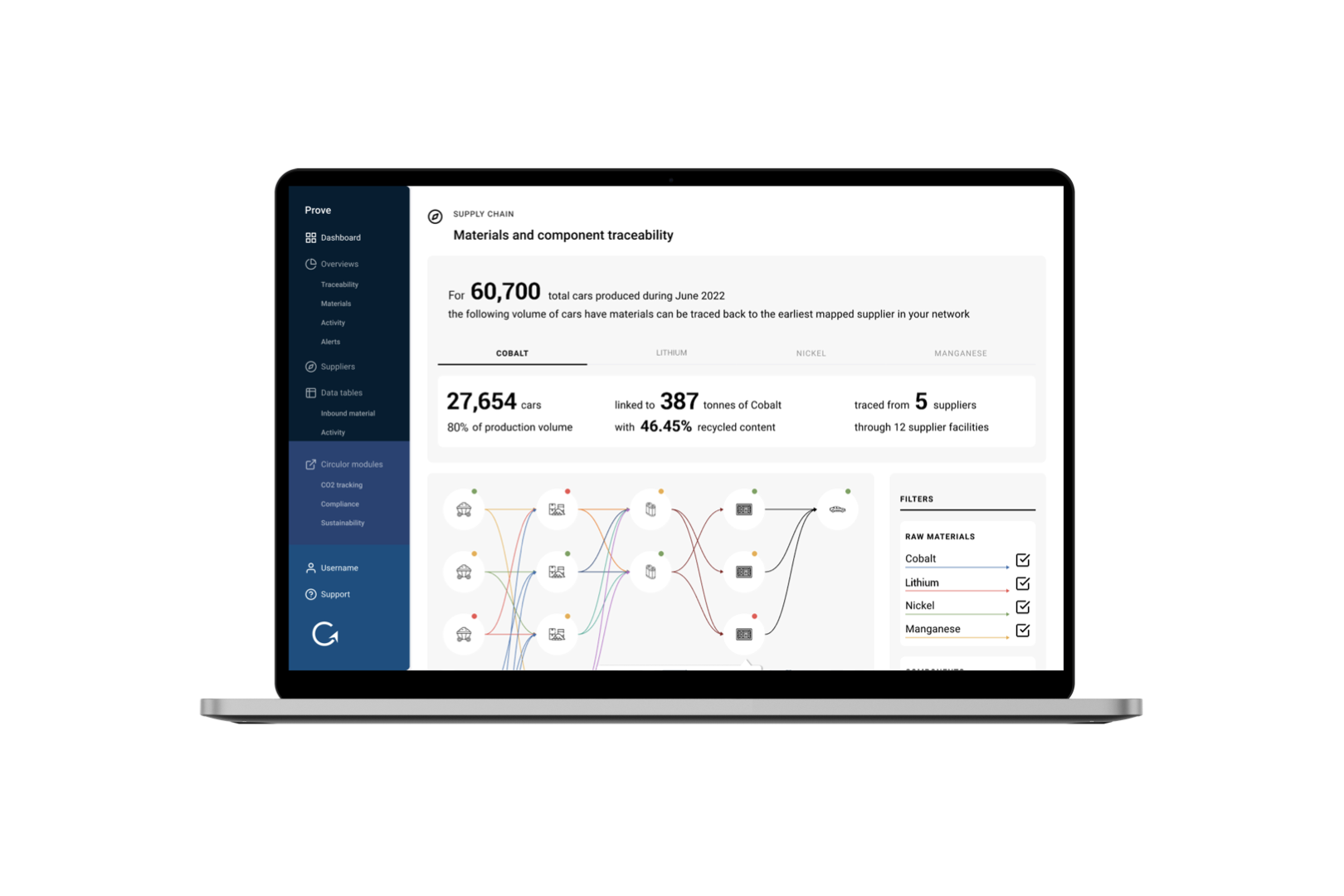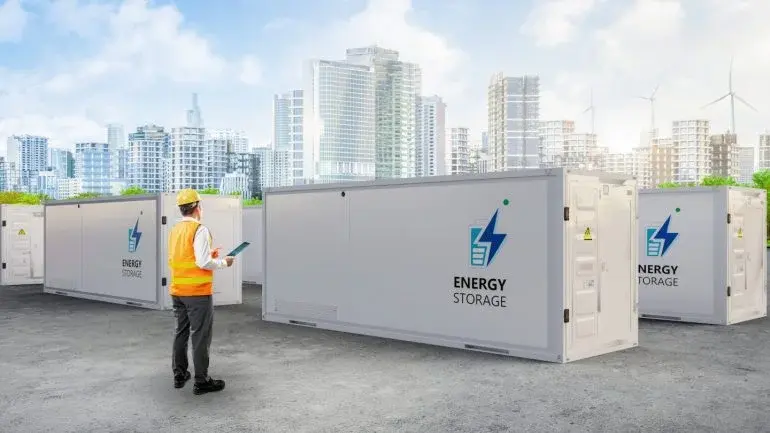
04.12.2024
Webinars
FAQs - Due Diligence under the EU Batteries Regulation
If I need to be ready by August 2025, how do I start building a reliable chain of custody?
Building a reliable chain of custody requires end-to-end traceability, which takes time. However, as we get closer to regulatory deadlines, more organizations across the value chain are working with traceability solution providers, like Circulor, who as a result have a growing network of participants providing traceability and sustainablity data to our platform - currently over 52% of global cell manufacturers (by production volume) providing data.
This enables effeciencies for new customers as we are likely already working with a number of your suppliers, speeding up the onboarding process.
Businesses should get started implementing traceability now to ensure they meet deadlines and make meaningful progress when it comes to supply chain due diligence and risk mitigation by August 2025.
Is it necessary to reveal the identity of every supplier in my supply chain?
No, it is not necessary to reveal every supplier within the supply chain. This is another benefit of working with an independent, neutral traceability provider as they will know who all your suppliers are because they're gathering data from them but that does not mean that all of the identities of suppliers need to be provided through the supply chain while still fulfilling the requirements of due diligence.
Watch the webinar on EU Batteries Regulation Due Diligence requirements
Downloadable Guide - How Circulor helps meet the EU BR Due Diligence requirements
Why does the EUBR set a new precedent for due diligence?
The EU Batteries Regulation is the first EU legislation which requires implementation of risked-based due diligence in its entirety. Existing legislation such as the EU Conflict Minerals Regulation requires due diligence based on so-called CAHRAs, the identification of control points, and focuses only on a very specific set of severe human rights and governance risks. The Batteries Regulation expands the scope to a much broader set of risks, including the environment, and requires important aspects such as risk prioritisation, remediation, and more through its commitment to several OECD frameworks, the UNGPs, etc.
Subsequent legislation such as the CSDDD will go even further in terms of scope and supply chain focus, which is limited in the EU Batteries Regulation to battery raw materials in the upstream segment of the supply chain.
Do the due diligence obligations also apply to batteries that are used within a company not just those being put on the market?
Yes, it covers batteries that are both placed on the market or put into service for the first time.
What are the penalties for companies that don't comply with certain elements of the EU Batteries Regulation?
The EU Batteries Regulation does not define specific financial penalties in case of non-conformity with the due diligence requirements. If companies fail to achieve third-party verification (Article 51) due to non-conformities with the due diligence requirements, EU Member States will decide on the consequences.
In addition, Article 84 says that Member States shall require the relevant economic operator to put an end to any non-compliances with the due diligence obligations.
In cases of continued and serious non-compliances, measures may include the prohibition to make batteries concerned available on the market, or their withdrawal from it. This type of enforcement is different from other requirements in the EU Batteries Regulation which fall under the CE marketing rules.






![Acculon RA Circulor - website image.001[44].png](/_next/image?url=https%3A%2F%2Fdecisive-wonder-fa24533282.media.strapiapp.com%2FAcculon_RA_Circulor_website_image_001_44_2720fb315d.png&w=1920&q=75)



